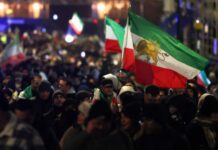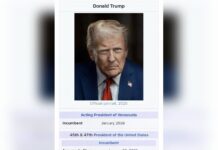 KARACHI: Buoyed by an emphatic win by Nawaz Sharif, Pakistani stock market today surged to a record high after crossing 20,000-level for the first time in history and added nearly Rs 10,000 crore to the investors’ wealth.
KARACHI: Buoyed by an emphatic win by Nawaz Sharif, Pakistani stock market today surged to a record high after crossing 20,000-level for the first time in history and added nearly Rs 10,000 crore to the investors’ wealth.
The Karachi Stock Exchange’s benchmark index KSE-100 rose to its all-time high of 20,309.36 points this morning with a gain of 1.8 per cent of 359 points, as the general elections held over the weekend delivered a clear mandate for the return of Sharif as the country’s next Prime Minister.
Sharif, himself an industrialist and co-owner of diversified multi-million dollar conglomerate Ittefaq group, has said that revival of economy would be among his top priorities. He is seen by many in Pakistan as someone who can fix the country’s bleeding economy.
Although Pakistan’s share market is small when compared to its Asian peers including that of India, the total wealth of its investors, measured in terms of total market value of all listed shares, rose today by about Rs 10,000 crore to close to Rs five lakh crore.
There are only 569 listed companies on the Karachi Stock Exchange, as against about 5,000 in the Indian stock market, where total investor wealth is close to Rs 70 lakh crore.
The number of companies listed on KSE has come down in the past few years, from more than 650 in 2009, as the country’s economy has been struggling amid a turbulent political scene.
However, a clear mandate in the just-held historic polls is expected to revive the economic activities and therefore the stock markets as well. Just one new company has got listed here so far in 2013, while there are no foreign investments at all in the country’s stock market.
Under the slogan “Strong Economy — Strong Pakistan,” Sharif seems to have successfully projected his image as a flag-bearer for private industry and entrepreneurship.
The industrial conglomerate run by 63-year-old Sharif’s family is among the biggest in the country and has interests in steel, sugar and various other manufacturing businesses.
Established in 1939 by Nawaz Sharif’s father late Muhammad Sharif, the group began with a small steel melting unit, which later became the largest private sector steel making entity within Pakistan.
The group, which is also known as Sharif group, also has 24 sugar factories within the country, in addition to companies operating in textiles, paper, hospitals and engineering sectors.
While the privately-held group has not disclosed its annual turnover on its website, the reports suggest that its total sales could be in excess of USD 2.5 billion (over Rs 30,000 crore). . The investors and corporate houses in Pakistan are said to be hopeful of an economic uptrend under Sharif’s leadership, as the privatization policies undertaken by him during his earlier tenures had also yielded good results.
Sharif’s daughter Maryam Nawaz yesterday said that the top priorities for her father after assuming power would include revival of the country’s economy and addressing the issues in power and other sectors.
Sharif has already selected Ishaq Dar, who served as Finance Minister in his last term as Prime Minister, for his cabinet again, hinting at a pro-business agenda to revive the economy.
His party leaders have said that one of the first priorities would be how to deal with the economy and a meeting of top business leaders would be called soon by the new government to discuss steps for economic revival.
Sharif has promised to transform the country’s economy, end corruption in state-owned enterprises, build a motorway from Lahore to Karachi and launch a bullet train.
Sharif’s campaign has focused a lot on the economy.
Pakistan ranks 146th out of 186 countries in the United Nations’ human development index, a measure of living standards, health and education.
Sharif had taken steps to liberalize the economy during his time in office in the 1990s.
Sharif was born in 1949 into a wealthy family of industrialists in Lahore and was educated privately at English-language schools.
He got degree in law from the University of Punjab before joining his father’s steel company and eventually entering politics after his family was hit considerably following nationalizing of nationalized private industry in the 1970s by then Prime Minister Zulfikar Ali Bhutto.
Under the patronage of former military ruler Zia-ul Haq, Sharif became first finance minister and then chief minister of Punjab – a post he held for five years from 1985 until he was elected prime minister in 1990.-PTI






